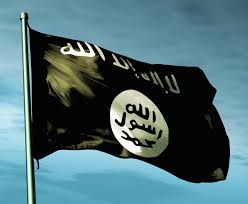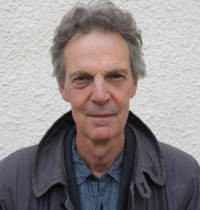Summary: Jeremy Harding at the LRB looks at the next big step by jihadists, and the amazing oddity of the West’s response.
Introduction
 Modern jihad has gone through several phases, each stronger and more virulent than the predecessor. First came Afghanistan’s Mujahideen, who burned out in internecine conflict (defeated by the Tailiban). Al Qaeda came next, destroyed in the years after 9/11. Then came ISIS, now being destroyed after its premature shift to phase three insurgent operations (per Mao’s schema: holding territory and waging conventional warfare). Now jihad takes a new step, resuming phase two operations (terrorism) — but expanding their operations into Europe.
Modern jihad has gone through several phases, each stronger and more virulent than the predecessor. First came Afghanistan’s Mujahideen, who burned out in internecine conflict (defeated by the Tailiban). Al Qaeda came next, destroyed in the years after 9/11. Then came ISIS, now being destroyed after its premature shift to phase three insurgent operations (per Mao’s schema: holding territory and waging conventional warfare). Now jihad takes a new step, resuming phase two operations (terrorism) — but expanding their operations into Europe.
We can only guess at what form this will take, and what jihadists learned from their previous failures. Here Jeremy Harding explains this stage in jihad’s evolution, and the great oddity of the West’s response. Red emphasis added.
By Jeremy Harding. Excerpt from London Review of Books. 15 July 2016.
Posted with the author’s generous permission.
“Gilles Kepel, a specialist on ‘Islam and the Arab world’, wrote last year in Terreur dans l’Hexagone – a study of French jihadism – that the Charlie Hebdo killings were ‘a sort of cultural 9/11’. The jihadism that we’re now confronted with, he argued, is a third wave phenomenon, superseding the mujahidin in Afghanistan (the first) and emerging in the long twilight of al-Qaida (the second).
“The latest wave is specifically targeted at Europe, with its significant Muslim population (about 20 million in EU countries): the approach is ‘horizontal’, favouring networks rather than cells; disruption, fear and division are the tactics; the radical awakening of European Muslims, many already disaffected and marginal, is the immediate objective. The murders at Charlie Hebdo’s offices and the kosher store in Paris brought the third wave ‘to a paroxysm’, in Kepel’s view, just as 9/11 brought the second ‘to its pinnacle’. At the time of writing, no one has laid claim to the atrocity in Nice: more than 80 dead, 50 hospitalised (‘between life and death’, in President Hollande’s words, earlier today).
 “…Hollande, who saw his national football team go the final in Euro 2016 and argued that things were on the mend in France, is now promising to increase air strikes in Iraq and Syria. Impossible, then, to fault his prime minister, Manuel Valls, when he says that the French must learn to live with events of this kind. Bombing the remains of Arab states does not drive terrorism beyond France’s borders; on the contrary. Why it doesn’t make politicians unelectable is a mystery: even Marine Le Pen has spoken half-heartedly in favour of France’s air strikes in Syria. But what use are they against an armed man in a truck on the Promenade des Anglais?”
“…Hollande, who saw his national football team go the final in Euro 2016 and argued that things were on the mend in France, is now promising to increase air strikes in Iraq and Syria. Impossible, then, to fault his prime minister, Manuel Valls, when he says that the French must learn to live with events of this kind. Bombing the remains of Arab states does not drive terrorism beyond France’s borders; on the contrary. Why it doesn’t make politicians unelectable is a mystery: even Marine Le Pen has spoken half-heartedly in favour of France’s air strikes in Syria. But what use are they against an armed man in a truck on the Promenade des Anglais?”
About the author
 Jeremy Harding has written for the London Review of Books for 25 years. His first pieces were about the unfinished wars of liberation in Eritrea, Angola, Mozambique and South Africa. Small Wars, Small Mercies: Journeys in Africa’s Disputed Nations
Jeremy Harding has written for the London Review of Books for 25 years. His first pieces were about the unfinished wars of liberation in Eritrea, Angola, Mozambique and South Africa. Small Wars, Small Mercies: Journeys in Africa’s Disputed Nations was published in 1994. In 2000 he published The Uninvited: Refugees at the Rich Man’s Gate
was published in 1994. In 2000 he published The Uninvited: Refugees at the Rich Man’s Gate .
.
In 2000 his report on unauthorised migration and refugee routes to the European Union won the Martha Gellhorn Award for Journalism. He updated it with new material from Europe and the US/Mexican frontier for his most recent book, Border Vigils: Keeping Migrants Out of the Rich World (2012).
(2012).
 (2012).
(2012).
He lives in France and has worked in the Balkans, West Africa and the Middle East. In conjunction with the Palestine Festival of Literature he has run writing workshops in the Occupied Territories. {This bio paraphrased from this source.}
No comments:
Post a Comment